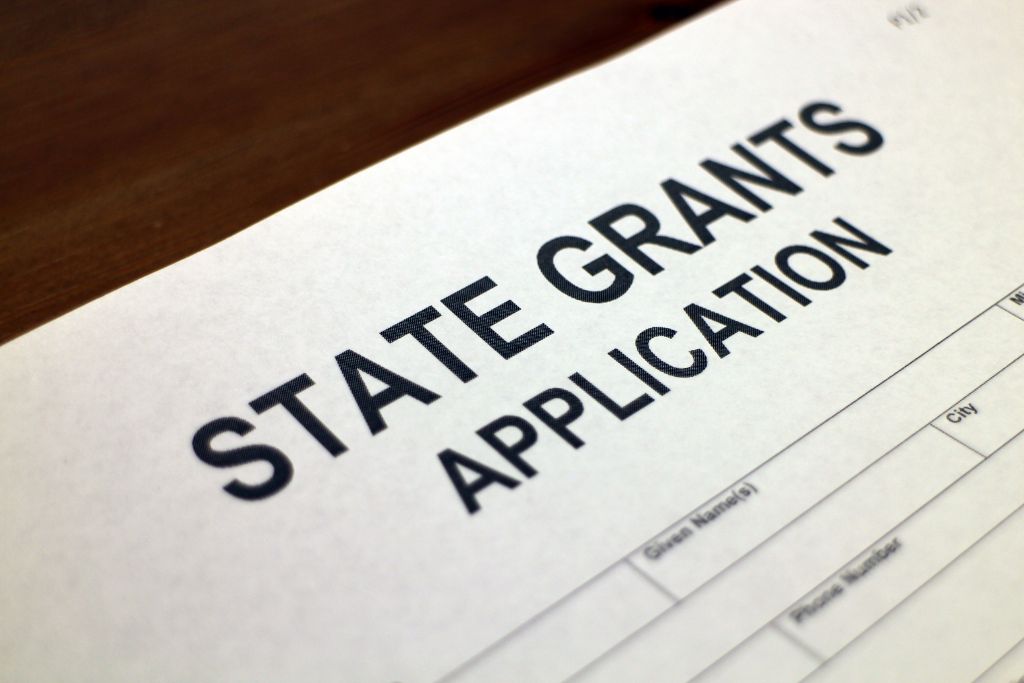
Profitable Business Ideas for Women to Start in 2023
November 17, 2022
5 Key Reasons Women-owned Businesses Drive the Economy
March 2, 2023Women-owned businesses have made significant economic contributions. However, despite their efforts, they face unique challenges in obtaining funding and resources, which makes expanding and growing their businesses difficult.
This is where grants for women businesses come in.
Women business grants provide financial assistance and resources to female entrepreneurs and assist their businesses in reaching their full potential.
Types of Grants
Federal Women Owned Business Grants

The federal government offers many incentives to help and strengthen women-owned enterprises. These programs are intended to empower women entrepreneurs with financial aid, training, counseling, and other services.
Here are some of the most important federal grants available to women-owned businesses:
Women’s Business Center (WBC) Program
The Women’s Business Center Program is an SBA project that provides training, coaching, and technical assistance to female entrepreneurs.
The initiative awards grants to nonprofit groups that run Women’s Business Centers (WBCs) across the country.
WBCs provide a variety of services, such as corporate strategy, money planning, advertising, and government procurement.
These centers also offer financing sources, networking opportunities and other resources to assist women entrepreneurs in starting and growing their firms.
Small Business Innovation Research (SBIR) Program
The Small Business Innovation Research (SBIR) Program is a federal grant program to help small businesses research and develop breakthrough technology.
The program offers financing to qualified small enterprises for research and development initiatives that satisfy the needs of government agencies.
The SBIR program gives women-owned enterprises a one-of-a-kind opportunity to obtain funding for creative initiatives and innovative ventures.
A percentage of the program’s money has been set aside for women-owned firms, allowing them to compete for SBIR awards on an equal basis with other small enterprises.
Small Business Technology Transfer (STTR) Program
Another federal grant program meant to assist small firms in their efforts to research and create innovative technologies is the Small Business Technology Transfer (STTR) Program.
The STTR program funds qualifying small enterprises to collaborate with research institutes on the development of new technologies that satisfy the demands of government agencies.
The STTR program offers a unique opportunity for women-owned firms to obtain funding for research and development initiatives.
A part of the program’s money has been set aside for women-owned firms, allowing them to compete with other small enterprises for STTR awards on an equal footing.
Community Development Financial Institutions (CDFI) Fund
The Community Development Financial Institutions (CDFI) Fund is a program that provides funding to organizations that offer low-cost lending and investment products and services to underserved communities.
The CDFI Fund awards grants to groups that function as community development finance institutions.
Many CDFIs provide microloans, which are modest loans of up to $50,000 that can be used for a variety of commercial purposes such as working capital, equipment acquisitions, and inventory.
By investigating these grant options and applying for those that meet their needs and eligibility requirements, women-owned businesses can boost their chances of getting grant funding and achieving their full potential.
State Women Owned Business Grants

In addition to federal funds, state governments offer a variety of grant programs aimed at supporting and empowering women-owned companies.
These state grants give financial aid, training, and other tools to assist women in launching and expanding their companies.
Here are a few state grants for women-owned businesses:
California Small Business Grant Program
The California Small Business Grant Program is a state effort that awards grants to eligible small companies affected by COVID-19.
The program’s goal is to assist businesses, notably women-owned enterprises, in obtaining the financial assistance they require to stay in business.
Businesses that meet certain eligibility criteria, such as having a yearly gross revenue of $2.5 million or less and being located in California, are eligible for the California Small Business Grant Program.
New York State MWBE Grant Program
The New York State MWBE Grant Program provides grants, loans, and other financial help to minority and women-owned businesses. The program offers up to $50,000 in grant funding to eligible MWBEs to assist them grow their operations and access new markets.
Businesses must be certified as minority or women-owned companies and meet certain qualifying criteria, such as having a yearly gross revenue of $15 million or less, to qualify for the program.
Texas Women’s Business Assistance Program
The Texas Women’s Business Assistance Program provides women entrepreneurs in Texas with training, counseling, and financial assistance.
Several funding options are available through the program, including the Entrepreneurial Training Grant and the Contract Assistance Grant.
The Entrepreneurial Training Grant funds training and education programs that assist female entrepreneurs in developing the skills and knowledge necessary to establish and grow their firms.
The Contract Assistance Grant gives funds to women-owned enterprises that have been awarded a government contract but require assistance in meeting the contract’s conditions.
Illinois DCEO Grants for Women Entrepreneurs
The Illinois Department of Commerce and Economic Opportunity (DCEO) offers a number of funding programs for female entrepreneurs.
A few examples of these initiatives include:
- The Community Development Block Grant
- The Small Business Development Center Grant
- The Minority Business Development Grant
Community organizations that assist small companies in underserved areas are awarded funds through the Community Development Block Grant.
The Small Business Development Center Grant funds organizations that provide counseling and technical assistance to small businesses, including women-owned enterprises.
Minority and women-owned firms that require assistance with marketing, technology, or other business-related expenses are eligible for the Minority Business Development Grant.
State grants are an important source of funding and assistance for women entrepreneurs who are establishing or growing their firms.
Private Foundation Women Owned Business Grants

In addition to federal and state grants, private foundations also offer grants to support women entrepreneurs.
The Tory Burch Foundation
The Tory Burch Foundation is a non-profit that gives funding and support to female entrepreneurs.
The organization has a grant program called the Fellows Program, which provides a $5,000 fund, one year of business education, and networking opportunities to women-owned firms.
Businesses must be women-owned, have a yearly revenue of less than $500,000, and have been in operation for at least one year to be eligible for the Fellows Program.
The Cartier Women’s Initiative
The Cartier Women’s Initiative is an entrepreneurship development program that helps women entrepreneurs with financing, training, and mentoring.
The initiative provides up to $100,000 in grants to women-owned enterprises in their early phases of development.
Businesses that are women-owned, have been in existence for less than three years, and have annual revenues of less than $1 million are eligible for the Cartier Women’s Initiative.
The Amber Grant
WomensNet, a non-profit organization that provides information and support to women entrepreneurs, administers the Amber Grant.
Each month, one woman-owned firm receives a $2,000 grant, and one woman-owned business receives a $25,000 grant at the end of the year.
To be eligible for the Amber Award, businesses must be owned by women and have a compelling story to tell about their company and how they intend to use the grant monies.
The Eileen Fisher Women-Owned Business Grant Program
The Eileen Fisher Women-Owned Business Grant Program provides grants to women entrepreneurs who are devoted to bringing about environmental and social change.
The initiative provides up to $10,000 in grants to women-owned enterprises in their early phases of development.
Businesses must be women-owned, have been in existence for less than three years, and be committed to making positive social and environmental change to be eligible for the Eileen Fisher Women-Owned Business Grant Program.
Private foundation awards provide women-owned enterprises with an extra source of capital and assistance in launching and expanding their firms.
Crowdfunding for Women-Owned Businesses

Crowdfunding is an increasingly popular option for women-owned businesses to generate capital and get their ideas off the ground.
Crowdfunding entails soliciting modest sums of money from a large number of people in order to fund a commercial endeavor or venture.
Types of Crowdfunding
Crowdfunding is classified into four types: reward-based, equity-based, donation-based, and debt-based.
- Reward-based crowdfunding: This is the most popular type of crowdfunding among women-owned businesses. Donors receive a benefit, such as a product or service, in exchange for their donation in reward-based crowdfunding.
- Equity-based crowdsourcing: In exchange for their contribution, equity-based crowdfunding participants receive a share of the company.
- Donation-based crowdfunding: This is a common sort of crowdfunding among non-profit organizations. Donors make financial contributions to a cause or organization.
- Debt-based crowdfunding: This occurs when investors lend money to a business in exchange for interest on their investment.
Women-owned businesses can choose from a variety of crowdfunding platforms, including Kickstarter, Indiegogo, GoFundMe, and Crowdfunder.
Each platform has its own set of regulations, fees, and prerequisites.
Women-owned enterprises can investigate each platform to see which one is most suited to their venture.
Eligibility Criteria
The grant provider’s eligibility criteria for women-owned businesses may differ.
Among the most prevalent requirements are:
- Women ownership: A woman or a group of women must own and operate the firm.
- Business type: The company must be for-profit and operate in one of several areas, such as technology, manufacturing, or retail.
- Revenue: The company must meet certain revenue standards, such as generating a certain amount of annual revenue or employing a certain number of people.
- Location: Some awards are given only to businesses located in specified states or areas.
- Time in business: The company must have been in operation for a specific amount of time, such as at least one year.
Application Process
The application process for women owned business grants varies depending on the grant provider, but generally includes the following steps:
- Research: Research various grants that match your business needs and eligibility criteria.
- Prepare: Gather all necessary information and documents, including business plans, financial statements, and tax returns.
- Apply: Submit your grant application along with all required information and documents.
- Follow up: After submitting your grant application, follow up with the grant provider to ensure your application was received and to ask any questions you may have.
- Grant Notification: If you are selected as a grant recipient, you will receive a notification of award and instructions on how to claim your grant funds.
Tips for a Successful Women Business Grant Application
- Before applying, thoroughly read the award guidelines and ensure that your company fits all eligibility conditions.
- Make your grant application specific to the grant giver and the grant’s objective.
- Provide clear and complete information about your company, such as goals, financial predictions, and marketing initiatives.
- If necessary, include strong and persuasive letters of recommendation.
- Make your grant application as detailed and exact as possible, as any errors or omissions may result in your application being disqualified.
Women business grants are a significant source of funding and support for female entrepreneurs who are establishing or expanding their firms.
Women-owned businesses can boost their chances of getting grant funds and attaining their full potential by completing thorough research, planning ahead of time, and adhering to the grant application process.




